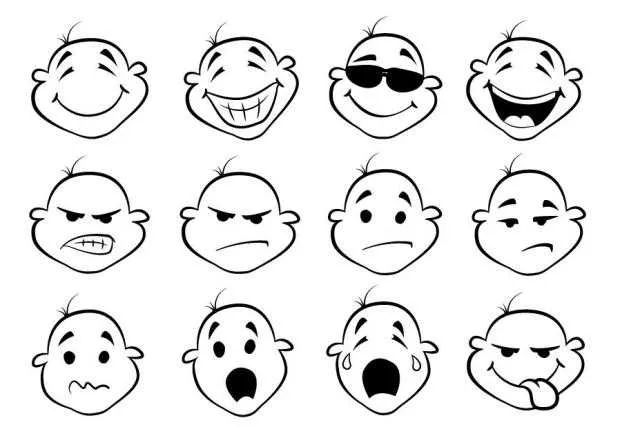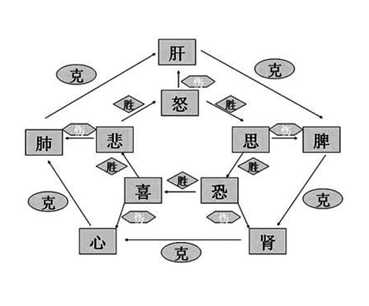In the process of recognizing the surrounding world or interacting with others, individuals inevitably experience corresponding emotions, which in Traditional Chinese Medicine (TCM) are referred to as the Seven Emotions: joy, anger, worry, contemplation, sadness, fear, and shock. Under normal circumstances, fluctuations in these emotions have little impact on health and do not lead to disease. However, when excessive emotions arise due to internal or external stimuli, they can lead to various illnesses.

1. The Liver is associated with Anger; excessive anger harms the Liver.
Excessive anger often causes Liver Qi to rise, and in severe cases, blood may follow the Qi in its reversal. Clinically, this manifests as headaches, facial redness, irritability, and anger; if blood follows Qi in reversal, it may lead to vomiting blood or even fainting. If Liver Qi obstructs the Spleen, symptoms such as abdominal pain and diarrhea may also occur.

2. The Heart is associated with Joy; excessive joy harms the Heart.
Excessive joy can scatter Heart Qi or disturb the spirit. Mild cases may present as palpitations, insomnia, shortness of breath, and lack of concentration; severe cases may lead to mental disturbances, mania, or symptoms of Qi collapse such as profuse sweating, weak breath, and faint pulse.

3. The Spleen is associated with Contemplation; excessive contemplation harms the Spleen.
Excessive contemplation leads to stagnation of Heart and Spleen Qi, resulting in impaired transformation and transportation. Clinically, symptoms may include palpitations, insomnia, vivid dreams, mental fatigue, lack of energy, reduced appetite, abdominal distension, and loose stools.

4. The Kidney is associated with Fear; excessive fear harms the Kidney.
Excessive fear can cause Kidney Qi to become unstable, leading to Qi sinking. Clinically, symptoms may include incontinence, nocturnal emissions, and bone weakness.

5. The Lung is associated with Sadness and Worry; excessive sadness and worry harm the Lung.
Excessive sadness and worry can deplete Lung Qi or disrupt its dispersal and descending functions. Clinically, common symptoms include low spirits, lack of energy, shortness of breath, chest tightness, and fatigue.

6. Excessive shock leads to Qi disturbance.
Sudden shock can cause instability of the spirit and disrupt the flow of Qi. Clinically, symptoms may include anxiety, confusion, and in severe cases, mental disarray.

Moreover, the interplay of multiple emotions can easily harm the Heart, Liver, and Spleen: since the Heart, Liver, and Spleen play crucial roles in physiological and emotional activities in the body, emotional injuries are most likely to damage these three organs.
 Focus on health, focus on Aihang Tianxia!
Focus on health, focus on Aihang Tianxia!

